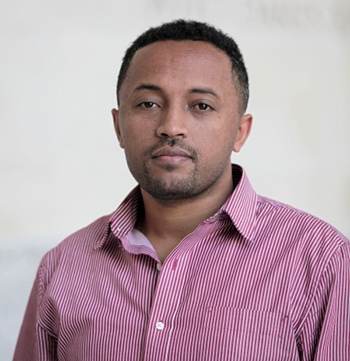Latest News Archive
Please select Category, Year, and then Month to display items
10 March 2022
|
Story Anthony Mthembu
|
Photo Unsplash
 The No Student Hungry team gearing up to start distributing food parcels to the selected students.
The No Student Hungry team gearing up to start distributing food parcels to the selected students.
The UFS is one of the many institutions of higher learning where food insecurity is an active issue. However, the
No Student Hungry Programme is one of the initiatives launched at the university to assist in fighting food insecurity at the institution.
The purpose of the programme
Since its inception in 2011, the initiative has assisted many students in acquiring a healthy meal. Additionally, the Food Environment Office also hands out food packages, so that students can continue to achieve academically. “We are trying to develop a healthy environment for students and make it easier for them to have a nice and healthy meal,” stated Annelize Visagie, who heads the Food Environment Office at the UFS. The Food Environment programme is spread out on all three campuses, each with its own facilitators. Furthermore, the programme mainly caters for students who are not funded by the National Student Financial Aid Scheme (NSFAS) but who are excelling academically. The abovementioned students apply for assistance online, and a list is then drawn up of students who receive assistance for the year.
Alternative solutions to keep the initiative running
On the Bloemfontein Campus, the No Student Hungry Programme will be catering for 200 students in the 2022 academic year, assisting them with a daily nutritious meal. Additional food parcels are also handed out to provide further assistance. “We give food parcels to the students on the list every Tuesday and Thursday at the Thakaneng Bridge,” Visagie highlighted. However, she argues that catering for the student population through this programme can be a challenge, as the demand for assistance is growing rapidly and the ability to assist is limited. The programme relies on partnerships and sponsors to assist the student body. In fact, the coordinators of the programme currently have a memorandum of understanding with Tiger Brands according to which they deliver around 100 food parcels for distribution.
In addition, the coordinators have put in place alternative measures to ensure that they can provide more food to students. “The
Kovsie Act Office, in partnership with the
Department of Sustainable Food Systems and Development, has started a food garden where healthy and nutritious produce are grown, in order to add value to the distribution,” she indicated. Although the programme can only assist to a point, students who are in desperate need of assistance are never turned away. In fact, the
Social Support Unit at Thakaneng Bridge usually assists students with food vouchers for a maximum of four days.
A commitment to teaching healthy eating habits
The programme is not only committed to curbing food insecurity, but also to ensuring that students have a healthy and balanced diet. As such, a booklet is being issued by the
Department of Nutrition and Dietetics in collaboration with the Department of Sustainable Food Systems and Development, which contains ways in which students can make a healthy meal using some of the ingredients offered in the food parcels.
“We want to teach students how to eat healthy in the cheapest way, because they don’t have a lot of money to buy expensive food products,” Visagie argued.
First UFS/AS Young African Scholar Award winner announced
2016-03-10

Fana Gebresenbet Erda, winner of the first University of the Free State /Africa Spectrum Young African Scholar Award, for his research on political economy.
Photo: Supplied |
Scholarship in African Studies still faces the challenge of capacity-building to increase ownership by authors and institutions from and on the African continent. It also requires more coordinated efforts to provide the space deserved by African authors in the international domain. In 2015, the University of the Free State (UFS) Centre for Africa Studies joined forces with Africa Spectrum (AS) in a bid to address this issue by establishing the UFS/AS Young African Scholar Award.
This award seeks to strengthen efforts to promote internationally recognised African scholarship in African Studies. One way to achieve this objective is through publishing articles by researchers based in Africa and in the diaspora in Africa Spectrum, an accredited journal compiled by the German Institute of Global and Area Studies in Hamburg.
The inaugural award winner
Fana Gebresenbet Erda, a PhD candidate in a Global and European Studies programme jointly offered by the University of Leipzig (Germany) and Addis Ababa University, wrote the winning article for 2015. He will receive a three-year affiliation to the UFS Centre for Africa Studies as a Research Fellow, along with prize money of R5 000, sponsored by the UFS.
His article, The Ethiopian Developmental State in Its Peripheral Lowlands: Large-Scale Land Acquisitions, the Politics of Dispossession and State Remaking in Gambella, Western Ethiopia, argues that development through large-scale land acquisitions in Gambella, Western Ethiopia, belies a state-remaking project under a dispossessive political economy.
Submission now open
Africa Spectrum invites scholars to submit research articles in the context of the award. In October of each year a review committee selects submissions for review. Those eligible to submit are postgraduate students nearing completion of their PhD theses and postdoctoral scholars who were awarded their PhDs no more than five years earlier at the time of the submission deadline. Those submitting should be from Africa or should be affiliated to African institutions.